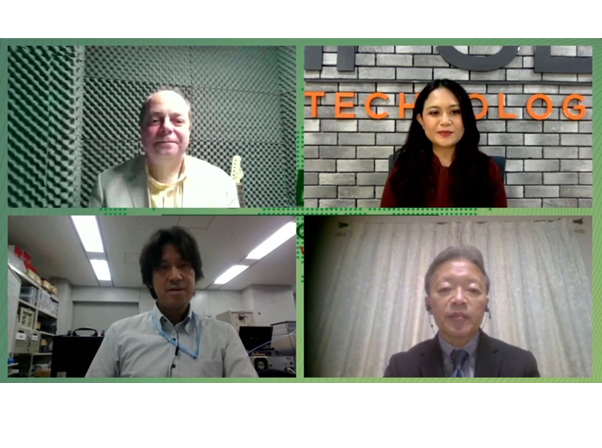The challenge of running TV and radio services during the pandemic was on most people’s minds at the 2021 ABU Digital Broadcasting Symposium on 5-8 April.
Staged by the Asia-Pacific Broadcasting Union, the event took place entirely online for the first time in its 17-year history.
It featured a four-day conference with 13 sessions along with three sponsored workshops. The organisers decided against holding the usual exhibition of broadcast technologies and services.
The key conference session, the Industry Debate, focused on overcoming the pandemic and sharing experiences. Moderated by Nepal Television journalist and presenter Shivanee Thapa, it brought together senior broadcast engineers from six Asian countries.
Panelists described how they had been forced to change the way they operated as Covid-19 spread across the globe. Many acted to speed up their adoption of streaming technologies.
Despite having emergency broadcasting plans in place, some were left scrambling. As one put it: “The worst case was worse than we imagined.”
The challenges they faced included the health risks to their staff and limitations on their movements, as well as a drop in advertising revenue from traditional sources.
“Before the pandemic, we could never have thought of progress on any development without a physical meeting,” Sunil from Indian public broadcasting agency Prasar Bharati told the session. Now everyone had become used to video conferencing, he said.
The effects were felt in even the smallest ways, such as how to apply make-up to presenters before going on air when make-up brushes could not be used on more than one person and social distancing was required.
In another session, the CEO of Commercial Radio Australia, Joan Warner, said the pandemic had brought fundamental changes to the country’s media sector, including “a massive acceleration in the adoption of digital services”.
The focus on digital had seen advertising dollars continue to shift away from so-called traditional media to social and online, she said.
This had led to consolidation, cost-cutting and closures across the media sector last year, particularly in magazines, regional TV and regional print media.
Radio had gone through tough times too, Ms Warner said. But it remained one of the most successful mediums at reaching and engaging listeners.
Other conference topics included advanced technologies, business strategies, content security, AI and big data applications and content security.
Speakers looked at 5G technologies and beyond, with Iranian researcher Sepideh Ghandali, from the national broadcaster IRIB, saying 6G technology would be in use by 2030 and 5G would be obsolete by 2035.
WorldDAB, Digital Radio Mondiale and media solutions and service provider Dalet all held hour-long workshops.
Opening the symposium, Malaysia’s Minister of Communications and Multimedia, Dato’ Saifuddin Abdullah, said the global pandemic was forcing many broadcasters to move more quickly to digital platforms.
He urged broadcasters to embrace new technologies and said media professionals knew that going digital was a journey for the development of a better world.
Subscribe to the radioinfo podcast on these platforms: Acast, Apple iTunes Podcasts, Podtail, Spotify, Google Podcasts, TuneIn, or wherever you get your podcasts.


